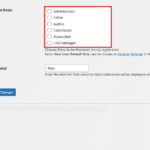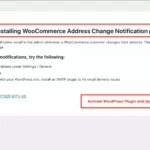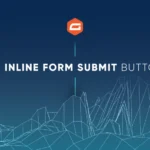
11 Frequently Asked Questions in SEO (with Answers)

What is PageRank, and is it the same as backlink juice or link equity?
PageRank was a patent created by Google’s founders to measure the separation of degrees between a list of trusted websites (known as seed sites) and your website. The closer you are to a trusted website in terms of interlinking, the more PageRank you receive. PageRank, backlink juice, and link equity all refer to the same things.
Which is better, Rank Math or Yoast?
RankMath and Yoast perform nearly the same functions, and for all intents and purposes help you accomplish the same SEO goals. Whether one chooses RankMath or Yoast is usually a matter of preference, past experience, and belief in the plugin.
Should there be only one H1 per page?
If you’re following semantic HTML principles, there should only be one H1 per page. Many SEOs however have reported the same results using multiple H1’s. The choice is yours and should be evaluated in your niche.
Can you rank high volume keywords without backlinks?
There are two theories of camps as it pertains to this question. Theory one states that backlinks are still the strongest ranking factor and signal, and that ranking high volume pages without them is incredibly hard and in some cases impossible.
Theory two states that Google uses agglomerative clustering to understand the total value of a website, and that if it answers a topic or niches queries in full, ranking high volume keywords is possible through interlinked silos and pyramid techniques that generate authority.
As far as we know, both theories are right, with theory one taking less time.
Is duplicated content against Google’s TOS or will it result in penalties and/or cannibalization?
No, duplicated content, not to be confused with plagiarized content, does not result in penalties or de-indexing. There are dozens of SEO’s who have duplicated thousands of pages across multiple cities and have earned high rankings on those pages for years.
In terms of cannibalization, if your duplicate pages are not different enough, Google may pick up pages for queries that are not your target page for index. Adding multiple locations to footers, and on service pages can confuse Google in regards to which location the page is for, resulting in cannibalization.
When duplicating pages for cities based on services, make sure your Title, Description, H1, H2’s, Body Content, Alt Tags, Schema, and Picture Names/EXIF Data all have the appropriate city name. This will help Google understand what city the duplicated page is for.
Does the amount of backlinks determine spam or toxicity scores?
No, the velocity or number of backlinks a website has does not determine spam or toxicity. The type of backlink, where it’s coming from, the anchored text, and other contributing factors determine spam/toxicity.
For example, one website may have 50,000 backlinks with very little toxic/spam identified links and another website 10 backlinks that are all identified as spam/toxic.
Should I add schema on a per-page basis?
Yes, schema should be added on a per-page basis, and not as a global attribute, especially as it pertains to products and local SEO. Each page is different and should be treated as such, with a local website using per-city schema on a per-city page basis, and products or e-commerce having different attributes per product.
There are many other uses such as for blogs, faq, author, and so forth which also only applies on a per-page basis, and not the entirety of the website.
How do I choose and write for a keyword or topic?
In essence, this depends on what type of website you have, how new it is, what your goals are, and what the competition is doing.
Having a local website for an accountant will lead to many different topics than a national e-commerce website that sells fidget spinners.
In general, most people tend to lean towards keywords or topics based on search volume inside keyword planners. However, if your website is new, you will not be able to obtain rank for high volume search keywords without using the above information, regarding backlinks.
There are other ways to find keywords, such as through Google organics. You can use Pythons unpacking modifier to begin looking for interrogatives of speech, and commonly asked questions.
Try typing How Accountants* or Why Accountants* into the Google search bar and you will understand what is being referred to.
This can open a world of blogging/article writing possibilities for you!
With that said, a few things remain true. Before writing any content you need to understand the intent of the keyword or topic you will be discussing. Is it informational, transactional, or directional?
You will need to look at the top 3-5 websites in the SERP for the keyword to understand what they are doing right and wrong. How is their UI? How many words are they using? What is their average keyword density? How many pages are interlinked to this page? How many backlinks are linked to this page? Are they using proper heading structure? Are their pictures and alt tags named correctly? What seems to be the common tone of writing? Dissect everything.
Begin creating your page with the averages above, and remember that SEO is iterative. You’re not done with the page you are creating until you are #1. This can include increasing keyword density, moving UI elements, adding content tables, increasing contrasts, changing wording/tone, updating heading structures, so forth, and so on.
Iterative SEO is very powerful and you can think of it as a lock and key. When your content (key) is iteratively optimized, it increases SERP ranking (lock).
Why aren’t my pages indexing?
At this point in search engine history, Google has enough beneficial pages about most topics and doesn’t necessarily need to index your website to provide a comprehensive answer for the query.
It is likely believed that each website has a different indexation priority and crawl budget for old pages and new ones. Some websites index more quickly than others, with new websites usually taking the most amount of time to index.
There is nothing that can be done if you have submitted your website and pages to search console and posted your links on high-priority crawled websites. Be patient.
Are long-tail keywords/keyphrases easier to rank?
Long-tail keywords and keyphrases are not easier to rank for. The difficulty of a keyword or keyphrase depends on how many properties have already written about the topic, and what their authority is for the given page and topic (not DA).
How can I get my websites and pages to index quicker?
Google has recently announced that their indexing capabilities are limited by resource issues. With that in mind, it is vastly important when creating websites or pages to make sure they provide the best user experience and great content for visitors.
In addition, here are other ways to try and get Google to index your websites and pages:
- Social Link Creation (Facebook, Twitter, Etc)
- Google Product Stacking (Google Stack)
- Submitting Your Sitemap for Index
Post Credit: Schieler Mew








